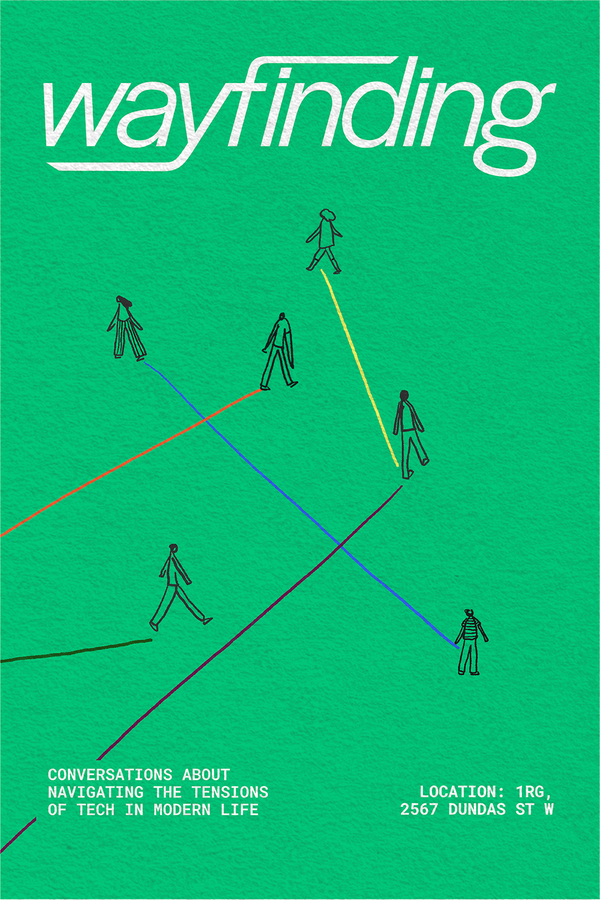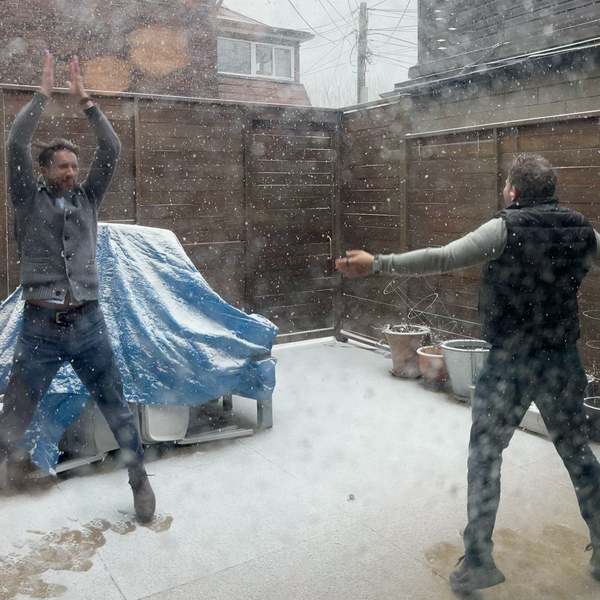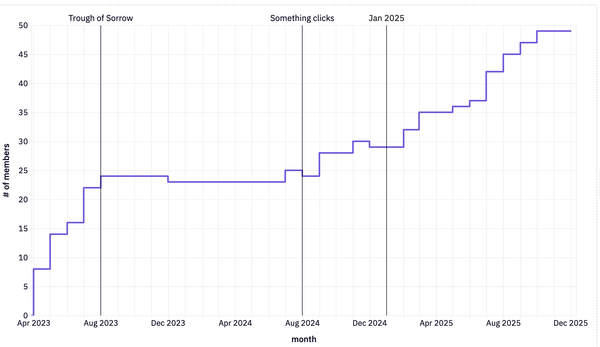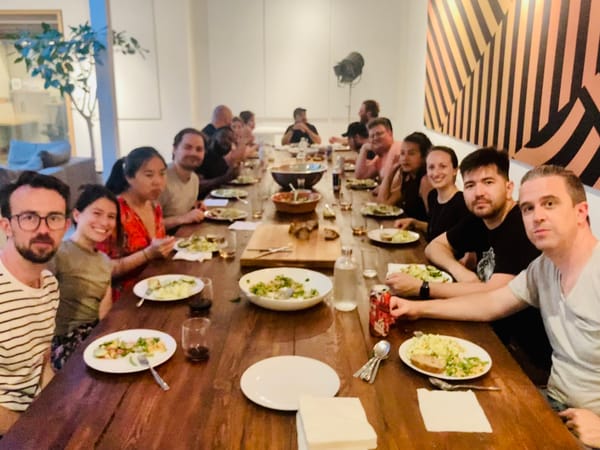1RG Incubator: Week One Reflections
We just wrapped up week 1 - here's a reflection on the first week, and the month leading up to it.
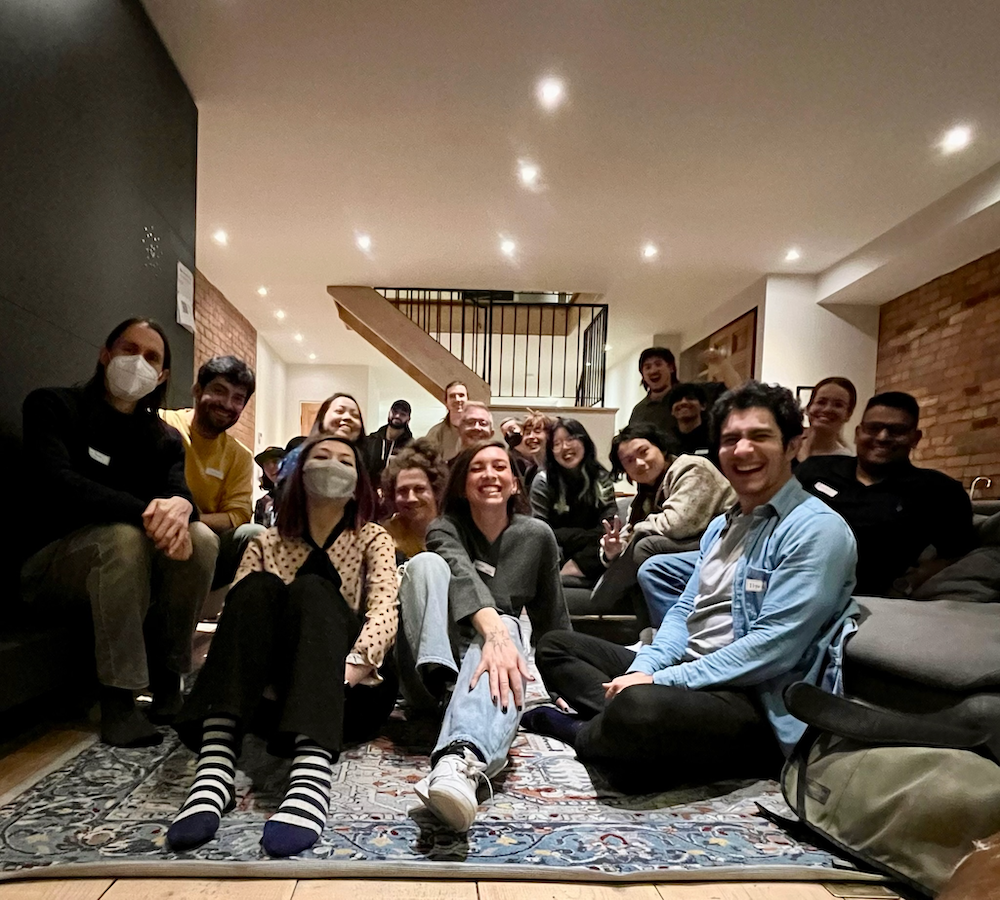
Back in January, we announced our newest experiment, the 1RG incubator for projects at the intersection of community and technology. We received many great applications and invited 6 people to join us for 12 weeks of co-creation.
We just wrapped up week 1 - here's a reflection on the first week, and the month leading up to it.
ICYM. The 1RG incubator is a 12-week mentorship program for individuals reimagining the relationship between people, technology, and the communities they live in. The theme for the first batch is Toronto the Good and our goal is to provide support/resources, legitimacy, and accountability to folks that are making Toronto a better place to live in.
The batch has membership to 1RG for the duration of the incubator, and we facilitate a weekly peer-to-peer accountability session topped by a social hour. We also have a fantastic group of over 30 mentors who are volunteering their time to offer advice in technology, community engagement, design, marketing + management, and so much more.
You'll notice that this is all very lightly structured. Both Max and I have gone through multiple batches at the Recurse Center (RC) and their model was a huge influence in setting up our incubator.
A little digression on the Recurse Center model. RC is a programming retreat, and is built around self-direction and community. You can read more about their philosophy here but in short, when you have the freedom to explore and pursue the things that you care about, your work is more fulfilling and meaningful. The other core aspect of RC is its community - each batch is shaped by its participants and therefore different from the any other, while the RC faculty provides a safe and supporting environment for that shape to take form.
Back to us. With these principles in mind, we think that our job as the builders of the 1RG Incubator container, is to provide a safe supportive environment, and unlock resources and connections for the batch, while also leaving lots of space for letting them define what things they need and how to reach for them.
The month leading up to the kick-off was all about building that container, and honestly it was a little wild. As we've learned from building 1RG Space and 1RG Labs in parallel, building 2 businesses is more than twice as hard as building one, and that principle doesn't change if you add a third project to the initial mix.
Everything everywhere all at once
Much of March was spent interviewing applicants, writing feedback, recruiting mentors, and planning the batch.
The kick-off was scheduled only a few days after our monthly community dinner, and while we know those are big endeavours, we thought for sure it would be okay. It probably would've been, if it wasn't that one of our consulting client come to us with an urgent request with deadline on the same week, while our partner Andrew was out of commission, and Max had to fly to sunny Florida on a days notice (more about Max's trip here).
The last week of March was frantic to say the least. Is this the time we learn to pace ourselves and do one thing at a time? I highly doubt.
Inception. The original impetus for a kick-off was that we wanted to give mentors and mentees an opportunity to get to know each other before jumping into the program. We're big believers in the power of in-person interactions, so we invited everyone to join us for a launch on March 28th. We love gathering people and fostering human connection, but while this was a Friday evening event, we wanted it to be a little more focused, so the first portion of the evening was lightly structured around the main themes of the incubator: our city – what we love about it and what we don't – and community care.
Because the week was so frantic, I honestly had forgotten why we're even doing this, but the night was an excellent reminder. It was incredibly energizing to see how many mentors (not just folks in batch) showed up on a Friday night and how invested they are in manifesting a optimistic vision for Toronto, based on humane, empowering technology and mutual aid principles. I felt a lot of gratitude for a very caring, agentic group of people.
Finally, week 1
Week one came around, and so our first session. As previously stated, our intention is to hold the container space and provide resources, but let folks in the incubator figure out what they need and how to go about it. After a round feelings check-ins to set the tone, each of the mentees had 10 min to present a question, or a challenge their facing, and have a group discussions about it. The questions ranged from naming considerations to structural decisions, and there have already been some a-ha moments, hinting that this approach is having the desired effects.
We also spent some time setting goals for the 12 weeks.
- Arjun is building Respitely a full stack react app that connects to the Toronto Open Data portal and provides information about shelter capacity and drop-in meals. While the website is already live, Arjun's goal for the incubator is to build a portal to allow organizations providing meals to log in and manage their information.
- Kelindi is building a TorontoID on top of AT protocol - a way for folks in the city to own their data, and use it in Toronto-focused software without being locked into any single application. Kelindi's goals for the incubator are to launch a sign up page, write good documentation and dev tooling, and build some examples of Toronto-specific apps that use the protocol.
- Veronica is rethinking civic participation and building an idea board to crowdsource residents' thoughts and ideas about public services. Veronica's goals for the incubator are building an MVP for the website, and partnering with at least one city councillor. Her initial idea included scraping social media, but after some conversations with mentors of the incubators, she's spending more time thinking about how public engagement works, and ways to bring people to direct engagement.
- Rachel is building a social learning platform to fill the knowledge gaps many people experience after leaving the education system (e.g. no one thought me how to budget 🫠). Her goal for the incubator is to build a 3-week pilot for her Adulting 101 course, and run it with a group of 4-5 people. In the short term, that means finalizing the curriculum, and recruiting some participants.
- seeley is our dramaturge in residency and is writing Ecofuturist Dispatches (temporary title) - a radio drama year-long seasonal series with companion interactive web platform, episodes sober yet hopeful set 15 years ahead in several larger Canadian radically refashioning urban-scapes, co-scripted and performed by a majority disabled and/or racialised artists' team of those cities, encouraging audience input via discussion forums. seeley's goals for the incubator include coming up with a final name for the series, a 40 min draft for the pilot episode – Toronto the good, and more concrete conceptualization for the interactivity of the companion website.
- Annie is building a practice for food sovereignty by way of mushrooms and her goal is to pilot getting as many mushrooms as possible in Toronto's backyards.
As we move into week two, I'm excited to see these projects evolve and especially how mentorship and collaboration shape them. Stay tuned for more and if you're interested in learning more about any of these projects or getting involved, please reach out.
